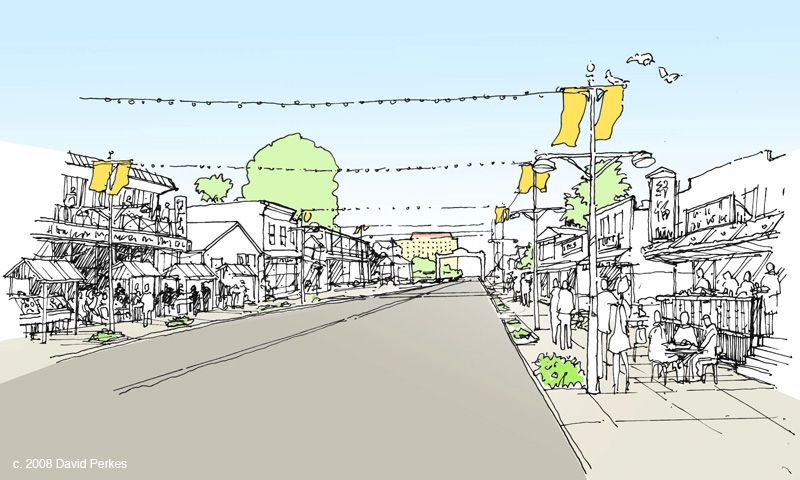Oak Street is the bookend for my mental map of East Biloxi, the last real stop of consequence before you head east to Ocean Springs. It’s not only because most of my projects are within a few blocks of the street, although (from east to west) Hoxie, Crawford, and Rosetti Streets are all ones I visit often. It’s the character of the street; even in its diminished state, you find the Vietnamese/French “Le Bakery”, the “Pho 777” restaurant, the Hong Kong Market with its (to me) exotic foods, several convenience stores, the Vietnamese church and Buddhist temple, and more.
Spanning the Point from the Back Bay to the beach, Oak Street owes a great deal to shrimping and fishing, once the primary industries in East Biloxi. These jobs attracted large numbers of Vietnamese fishermen during the 1970s and 80s (1). Shrimping and fishing have been in decline since the 90s, and Hurricane Katrina destroyed much of the fleet as well as displacing many of the workers. The booming casino industry has provided some new jobs; the Grand Casino anchors the beach end of Oak Street and the Isle of Capri and others are nearby.
Sporadically, some residents — black, white, Vietnamese, and more — are returning. Since Katrina, waves of volunteers have patronized the restaurants and businesses that have rebuilt at this unlikely (inter)national crossroads. Still, the community is struggling to regain its identity and cohesiveness. Change is definitely going to come to the neighborhood. The question is, will the residents be the ones who decide what kind?
I believe they should, and in this spirit we’re holding a community meeting tomorrow night for Oak Street residents, business owners, and other interested parties. Hosting are NAVASA (the National Alliance of Vietnamese American Service Agencies), Boat People SOS, and of course the East Biloxi Coordination Center (and GCCDS), all organizations that have been aiding the residents of Oak Street and the surrounding neighborhoods since Hurricane Katrina. Trinh from NAVASA and I and a number of others have been working to put together the meeting, with these principles in mind:
- People should be involved in the decisions that affect their lives.
- A strong neighborhood has citizens who are civically engaged and invested in its well-being.
- The values, assets, and goals identified by the community can shape the planning process.
Armed with five scenarios for the future of Oak Street, we hope to start a vigorous discussion. (We are also armed with pens, lots of paper, and a small battalion of Vietnamese translators). I’ll report back on the results after it happens!
Cites:
(1) The Invisible Tide: Vietnamese Americans in Biloxi, MS (NAVASA – Word .Doc)
(2) The Vietnamese In East Biloxi (American RadioWorks)








